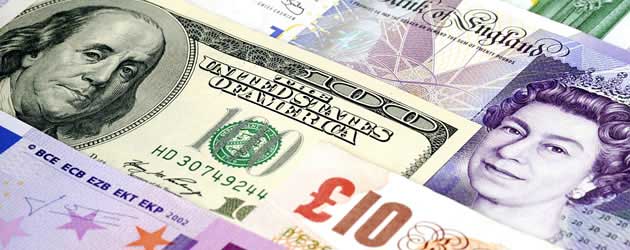
The Pound Sterling to Euro (GBP/EUR) Exchange Rate could challenge the 1.27 level in Wednesday’s session as investors turn their attention to the publication of the Bank of England’s July Monetary Policy Committee meeting at 9:30am GMT.
On Tuesday Sterling advanced to its best level in 22 months against the single currency as data showed that the UK’s budget deficit was little changed in June and as a report released by the Confederation of British Industry showed that manufacturers in the UK were enjoying a robust period of activity.
The data put more pressure upon the Bank of England (BoE) to raise interest rates.
Pound to Euro Forecast
With the BoE looking increasingly likely to hike rates its policy is diverging from that of the European Central Bank (ECB) which in a bid to tackle the threat of deflation in the stuttering Eurozone economy cut interest rates last month.
“The market seems to be hanging onto every hawkish word from Mark Carney. We are more likely to see a rate hike from the Bank of England in 2014 than we are from the European Central Bank or the US Federal Reserve,” said the executive director of UK foreign exchange sales at Nomura International.
The BoE policy meeting minutes will be closely watched by investors as it will show just how members of the bank’s monetary policy committee voted when the board chose to leave rates unchanged at the record-low level of 0.5% at the start of the month.
Later in Wednesday’s session Bank of England Governor Mark Carney is due to give a speech in Glasgow.
Investors will also be looking for any hawkish comments during the speech regarding the UK economy and any hint of a possible rate rise.
The only piece of market moving data due for the Euro will be released later in the session.
Consumer Confidence in the Eurozone is widely forecast to have remained at a reading of -7.5 but further declines are possible due to the uncertainty caused by events in Ukraine and the softening of recent Eurozone economic data releases.
The Pound was slowly, but steadily, approaching the 1.27 level against the Euro on Wednesday on expectations that the latest Bank of England Monetary Policy Meeting minutes will show that policy makers are edging closer to calling for a rise in interest rates.
With unemployment below the central bank’s target of 7%, inflation just off of the 2% target and growth in the UK’s manufacturing sector continuing strongly economists are calling for a rate hike.
Wednesday’s latest BBA Mortgage Approvals data for June is forecast to come in at 43.4k, better than May’s figure of 41.8k.
BoE governor Mark Carney is due to deliver a speech in Glasgow later in the session and investors will be closely watching for any hawkish comments.
Also due in the afternoon is the latest Eurozone consumer confidence data. The report is likely to disappoint and thus send the Pound Sterling to Euro (GBP/EUR) exchange rate higher.
Updated 24 July, 2014 16:05 GMT
The Pound Sterling to Euro (GBP/USD) exchange rate briefly fell below 1.26 during the European session as the Pound’s appeal was dampened by disappointing UK retail sales figures and the reduced odds of the Bank of England (BoE) increasing interest rates.
The Pound also slipped against its European cousin as the Eurozone’s Manufacturing, Services and Composite PMI measures all showed reasonable growth.
If tomorrow’s UK GDP report for the second quarter disappoints expectations the Pound could return to trending below 1.26.
Conversely, if the German IFO business climate report or GfK Consumer Confidence survey surprise the upside it may push the Euro higher before the weekend.
The Pound Sterling to Euro (GBP/EUR) exchange rate fell to a low of 1.2592.
Pound Sterling to Euro Forecast
As this week draws to a close the GBP/EUR pairing is trending in a weaker position thanks to a week of disappointing or lacklustre UK data sets.
The Euro, meanwhile, was bolstered by yesterday’s Markit PMI data for the Eurozone and its largest economies and was performing competitively well.
The pairing is currently trading slightly higher thanks to on-target UK growth data.
Next week movement in the Pound Sterling to Euro (GBP/EUR) exchange rate is most likely to be caused by developments in the Eurozone.
Given that the threat of persistently low inflation has been a major concern among European Central Bank policymakers, the Eurozone and German Consumer Price Indexes will be of particular importance.
Signs that consumer price inflation stagnated or slowed in July could trigger a rebound in the Pound Sterling to Euro exchange rate as the week progresses.

Comments are closed.